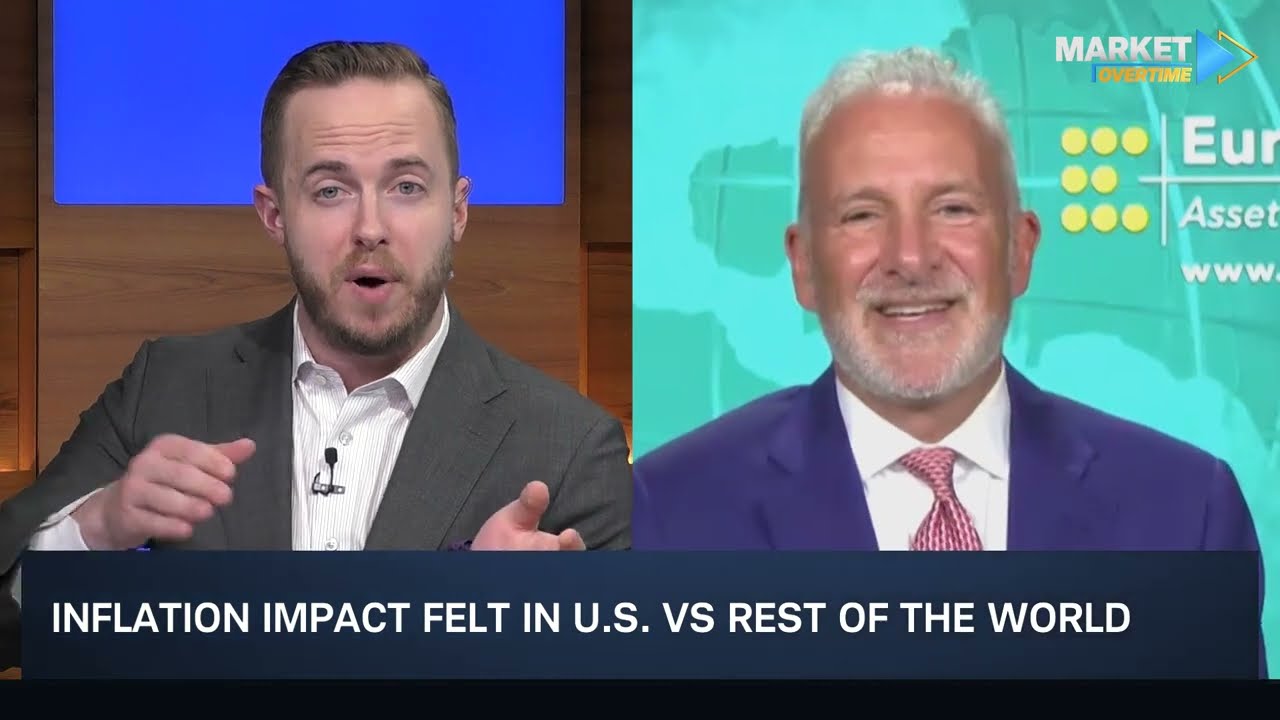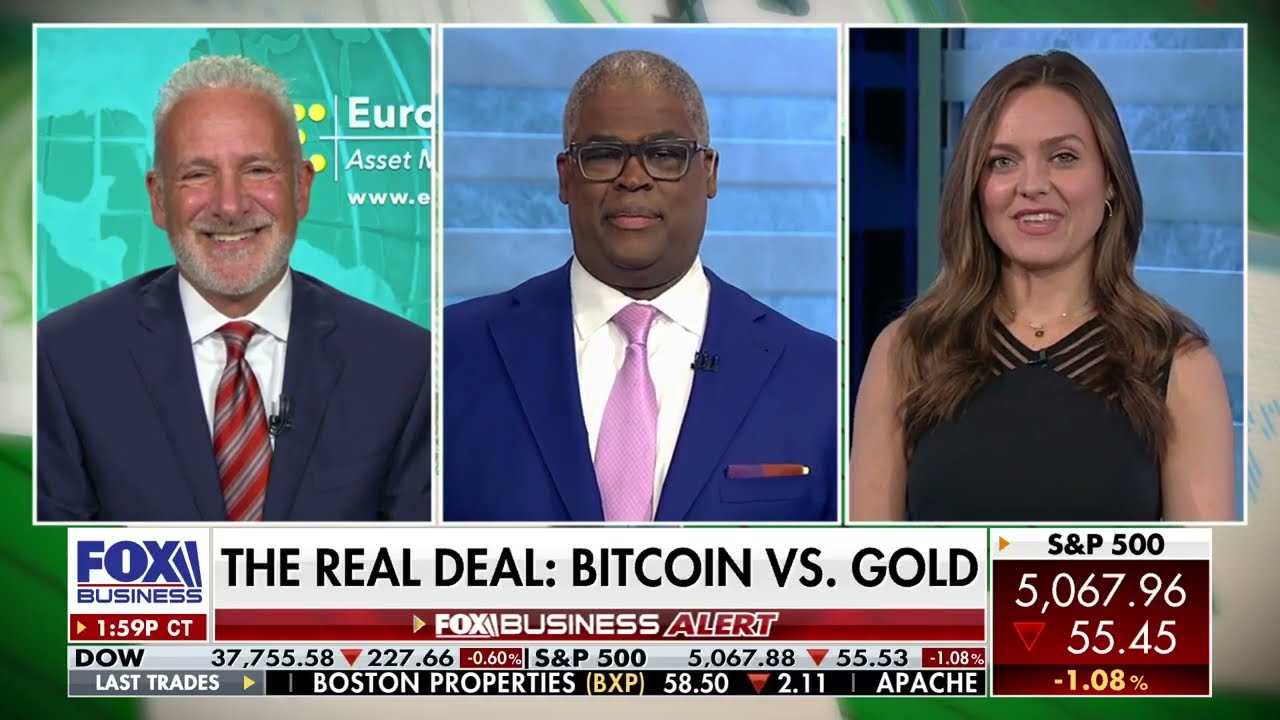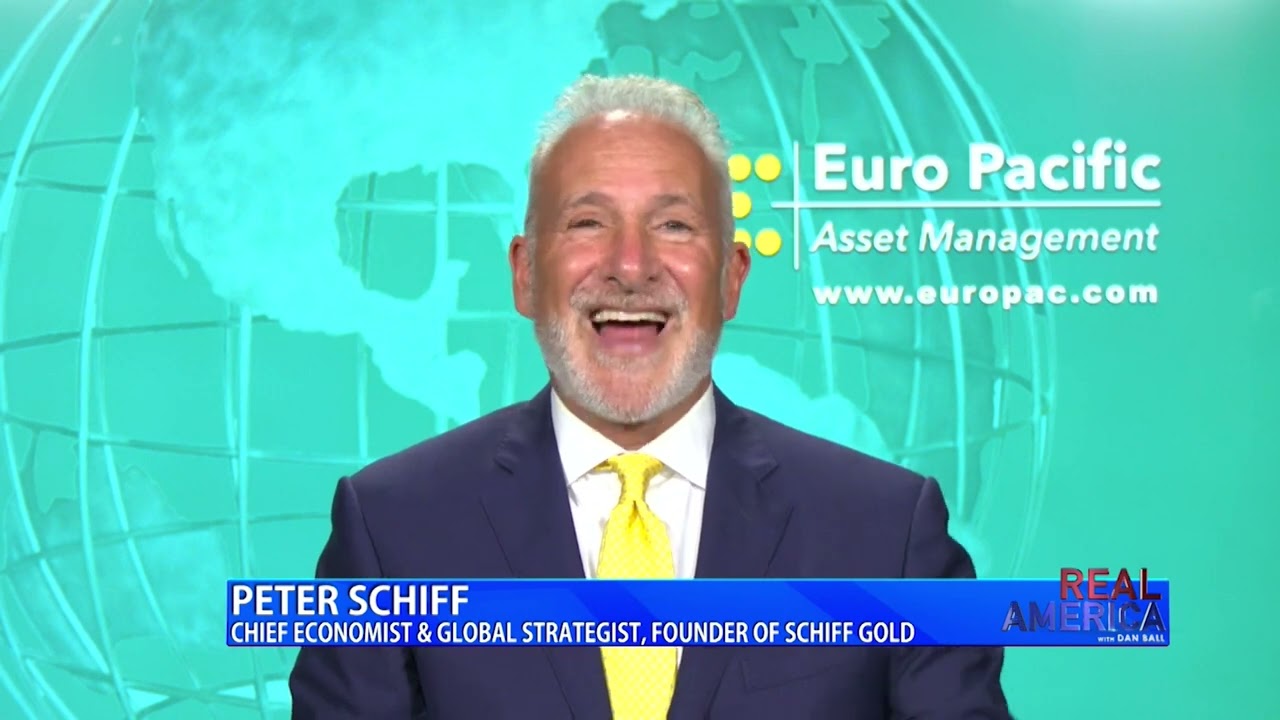Former Fed Governor: Central Bankers Need Humility (Video)
Former Federal Reserve Governor Kevin Warsh told CNBC’s “Squawk Box” that the Fed’s wishy-washy language and behavior has been spoiling the financial markets. Every nuanced speech of central bankers can influence markets, making it impossible for Americans to get a true idea of how the economy is behaving. Warsh finds it disturbing that the Fed has run its quantitative easing and interest rate experiments for 7 years while ignoring real economic indicators.
Warsh believes Fed officials have fallen prey to “groupthink,” which has put them completely out of touch with normal Americans. In this 2-part interview, Warsh says exactly what Peter Schiff believes, only less pointedly — not only has the economy not legitimately recovered, but it’s in for a rude awakening when the Fed’s policies drag it down again.
Another remarkable thing about this interview is the lack of push-back from the CNBC anchors. In fact, they agreed with Warsh that the Fed is relying too much on stock market performance to inform its decisions. Warsh concluded that central bankers need to change their attitude:
The most important thing that all central bankers should have right now is humility. We have never run this experiment, which we should all describe as radical. The idea that we somehow suggest that it is riskless to stay at these sorts of rates 7 years into a recovery strikes me as unnecessary.”
Part 1
Part 2
Highlights from the first part:
“The Fed has been spoiling the financial markets since the depth of the financial crisis. The Fed talks, markets move up, that’s been great. Now I’ll say markets are exhausted. They’re exhausted that the Fed has decided there’s a new set of benchmarks. There’s a new framework. Before it was forward guidance, now just kidding about forward guidance. Before it was once the unemployment rate’s at 6.5%, we’re going to get going and raise rates, now it’s 5.5% or 5%. Markets are exhausted by all this…
“My fear, though, is markets have come to the conclusion that Janet and her colleagues at the Fed won’t like, which is after the taper tantrum, markets got uncomfortable and said, ‘Oh, we’re not going to rush.’ Then we’ve had the dollar tantrum, and all of a sudden the Fed said, ‘Well, don’t worry, what we said last time isn’t quite true again.’ So markets think they have her number. Markets think that they’re going to be able to control these things and let markets go up. This is a very dangerous development…
“The truth is, by inflation measures created and controlled by the Federal Reserve, inflation is around 1.5% core. We’re supposed to not look at energy prices when they go up or go down. What’s the difference to the economy if inflation were at 2% versus 1.5% to the real economy? The answer is not much…
“We’ve had this incredible supply shock from energy and commodity prices and core inflation has been quite stable… At the first moment that people in the real economy are getting some benefit, after 7 or 8 years of folks in the real economy getting nothing, now’s the time we’re going to pull out the rug from under them? I don’t think so. The reality is inflation is not a problem. QE was designed in part to deal with deflationary issues. QE was designed as an emergency policy in a state of emergency. We shouldn’t use emergency policies when things are ok.”
Highlights from the second part:
“The difference in perspectives between the Fed’s view and a view that Marty Feldstein had this morning in the Journal, or my view, is the difference between should monetary policy be the most radical, extraordinary monetary policy that actually befitted the financial crisis, or should it still be very loose? The difference is not between some kind of hawkish, restrictive policy of Fed funds at 5%…
“I’d say they’re [the Fed is] quite a bit out of line in two respects. One, when we entered our balance sheet expansion called QE in the depths of the crisis, and QE 2 and 3 and beyond, what we said our exit principles were at the time is we’d first cut rates to 0, then we’d grow our balance sheet. When it was time to exit we’d shrink our balance sheet and then raise rates. Well the Fed has changed their exit parameters. Now they say they’re going to be tightening with one hand by raising rates just a little bit, and staying very loose with the other hand by leaving a $4 trillion balance sheet… Secondly, I would say interest rates need to be set in financial markets. Interest rates are not set in financial markets when the Federal Reserve and the world’s other central banks are the buyer of first and last resort. Financial markets, the Treasury markets, are telling us almost nothing about the state of the economy because central banks are influencing those prices with every word, with every nuanced speech from every Reserve bank president. We would be far better off if markets were setting prices instead of taking their lead from a bunch of government officials 7 years into a US economic recovery…
“The most important thing that all central bankers should have right now is humility. We have never run this experiment which we should all describe as radical. This experiment might work out well. But the idea that we somehow suggest that it is riskless to stay at these sorts of rates 7 years into a recovery strikes me as unnecessary and imprudent…
“I believe that if the Fed had not engaged in QE, the rest of the world wouldn’t have done it either. This is a very parochial American view, but we made this sort of extraordinary policy seem normal, seem like something that is commonplace…
“Virtually all guilds have a certain degree of groupthink. The economics profession is not immune to that. What troubles me is that we do not call attention to ways in which the groupthink could be wrong…
“They [the Fed] should not be financial price dependent… I worry very much that they have been. And by the way, the current central bankers learned that lesson from us in the depths of the crisis. We were then by necessity financial market dependent because we were trying to get the markets to open again on Monday. But that is a very dangerous lesson in 2015.”
Get Peter Schiff’s latest gold market analysis – click here – for a free subscription to his exclusive weekly email updates.
Interested in learning more about physical gold and silver?
Call 1-888-GOLD-160 and speak with a Precious Metals Specialist today!



 As fiscal imbalances persist, driven by coercive measures and artificial currency creation, the middle class faces erosion and purchasing power dwindles. But as the world hurtles towards a potential reckoning, the lingering question remains: can this precarious balance last, or are we teetering on the brink of a cataclysmic economic shift?
As fiscal imbalances persist, driven by coercive measures and artificial currency creation, the middle class faces erosion and purchasing power dwindles. But as the world hurtles towards a potential reckoning, the lingering question remains: can this precarious balance last, or are we teetering on the brink of a cataclysmic economic shift? Peter recently appeared on Market Overtime with Oliver Renick for an interview. In their wide-ranging discussion, Peter speaks on monetary policy, the reliability of inflation data, and reasons to avoid Bitcoin.
Peter recently appeared on Market Overtime with Oliver Renick for an interview. In their wide-ranging discussion, Peter speaks on monetary policy, the reliability of inflation data, and reasons to avoid Bitcoin. Peter recently appeared on Fox Business to discuss Bitcoin’s recent performance. In this segment, he takes on Natalie Brunell, host of the podcast Coin Stories, in a friendly debate on the merits of crypto and precious metals.
Peter recently appeared on Fox Business to discuss Bitcoin’s recent performance. In this segment, he takes on Natalie Brunell, host of the podcast Coin Stories, in a friendly debate on the merits of crypto and precious metals. Beneath the veneer of headline job gains, the American economy teeters on the brink: native employment dwindles as part-time and immigrant jobs surge. Government hiring camouflages looming recession warnings. Inflation and political blunders worsen the crisis, fueling public outrage at the establishment’s mishandling of the economy.
Beneath the veneer of headline job gains, the American economy teeters on the brink: native employment dwindles as part-time and immigrant jobs surge. Government hiring camouflages looming recession warnings. Inflation and political blunders worsen the crisis, fueling public outrage at the establishment’s mishandling of the economy. On Thursday, Peter appeared on OAN’s Real America with Dan Ball to discuss the U.S. Strategic Petroleum Reserve, the costs of home ownership, and the debt crisis. Peter argues the Biden administration won’t be able to refill the reserve, given oil’s 22% price increase this year. With the CRB exploding, Jerome Powell’s claim that inflation is coming […]
On Thursday, Peter appeared on OAN’s Real America with Dan Ball to discuss the U.S. Strategic Petroleum Reserve, the costs of home ownership, and the debt crisis. Peter argues the Biden administration won’t be able to refill the reserve, given oil’s 22% price increase this year. With the CRB exploding, Jerome Powell’s claim that inflation is coming […]